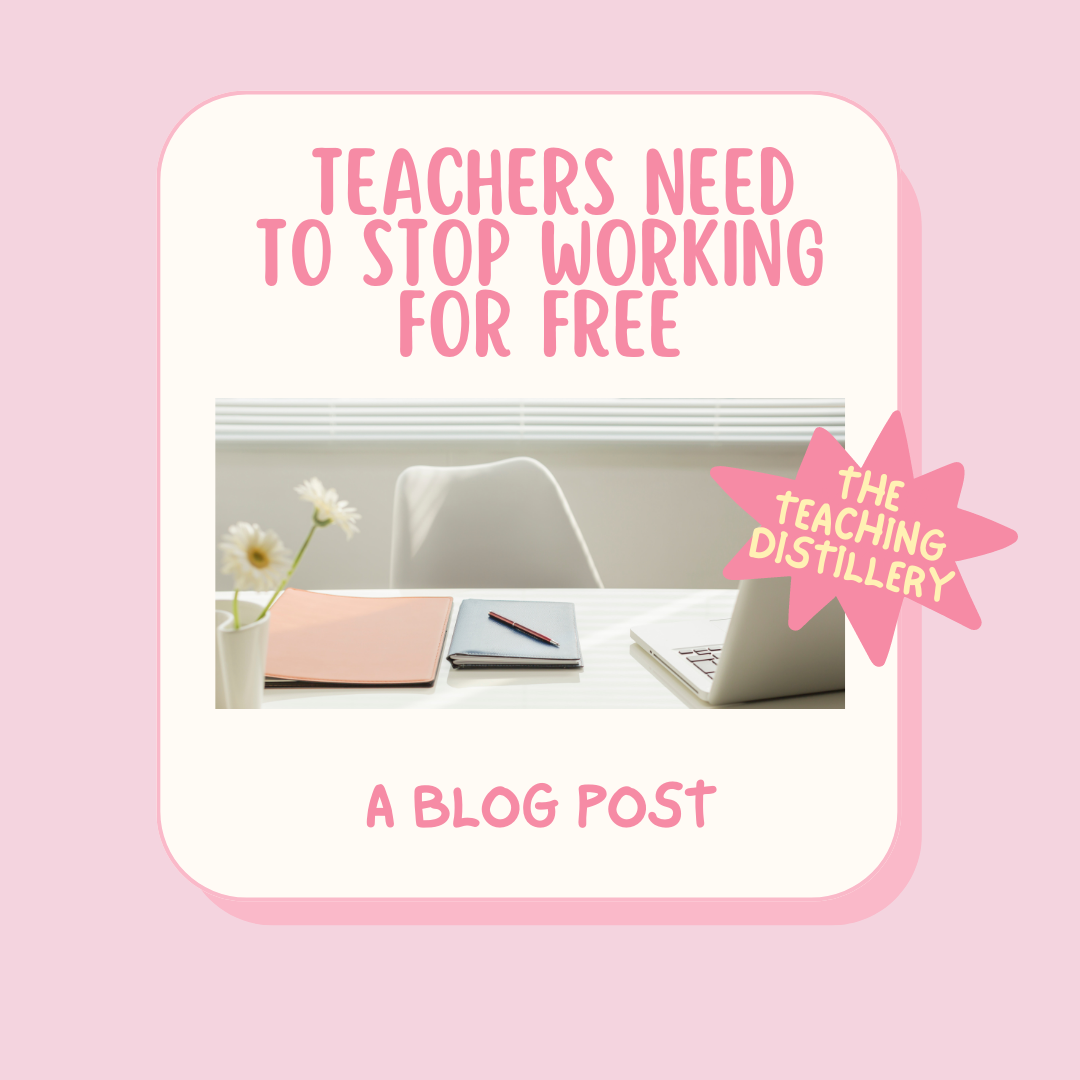Are you tired of the same old boring discussions in your English Language Arts (ELA) classroom? Do you want to spice things up and get your students thinking outside the box? Well, look no further than hexagonal thinking! It's the perfect way to engage your students and inject some creativity into your lessons.
Read MoreHere are some English lessons that I like to end the school year with in my 7th grade core class:
Read MoreIn this blog post, we'll explore the insights shared by Daniel T. Willingham in his article "Beyond Comprehension" and how they can reshape our approach to teaching reading.
Read MoreThis may be an unpopular opinion, but teachers, we need to stop working for free. The term “we do it for the outcome, not the income” is straight up harmful and perpetuates the myth that teachers will happily work for very little pay because we care so much about the future of our children. Why can’t we care a lot about kids and receive a livable wage?
Read MoreAs educators, we often find ourselves grappling with the question, "What does disciplinary literacy actually look like in my content area?" Teaching literacy skills for real-life applications can be challenging, but fear not! In this blog post, we'll delve into the insightful work of ReLeah Cossett Lent, offering you a guide to navigate the world of disciplinary literacy and empower your students.
Read MoreIf we want our students to become better readers, we need to begin to provide them with texts that are more challenging for them. Matching students with texts at their reading level does little to challenge students. However, when we provide students with a text that is at grade level, or even above their grade level, and we challenge our students while also working along side them to delve into the text and understand that text, now we are building competency. This evidence based approach helps students to read, struggle, and ultimately comprehend more complex texts.
Read MoreThe Common Core informational reading standards for middle school are arguably some of the most important reading standards to focus on in a school year. Here are the nine informational standards in a nutshell:
Read MoreThe integration of ambient music and screens in the classroom offers a holistic approach to enhancing the learning experience. From improving concentration to fostering creativity and reducing stress, these elements contribute to a more positive and inclusive educational environment.
Read MoreWe recently had a blog post titled, “How to Ask Better Questions and Foster Student Independence” based on the book, We Belong: 50 Strategies to Create Community and Revolutionize Classroom Management by Laurie Barron and Patti Kinney. If you have not checked it out yet, please do so before diving into this blog post. It is all about the teacher-centered approach to asking questions.
Read MoreThe evolving landscape of student behavior, especially in a post-pandemic era, has prompted us to delve deeper into the factors influencing these shifts. Beyond the commonly cited culprits like screen time and socialization, there lies a fascinating connection between problem behaviors and cognitive challenges. In this blog post, let's explore insights from the ASCD article "What's Behind the Rise in Problem Behavior? It Could Be Cognitive," shedding light on how understanding cognitive factors, specifically executive function and memory, can empower teachers to navigate and enhance student behavior.
Read More










